Best Scheduling Software for Business Efficiency in 2025
Best Scheduling Software for Business Efficiency in 2025
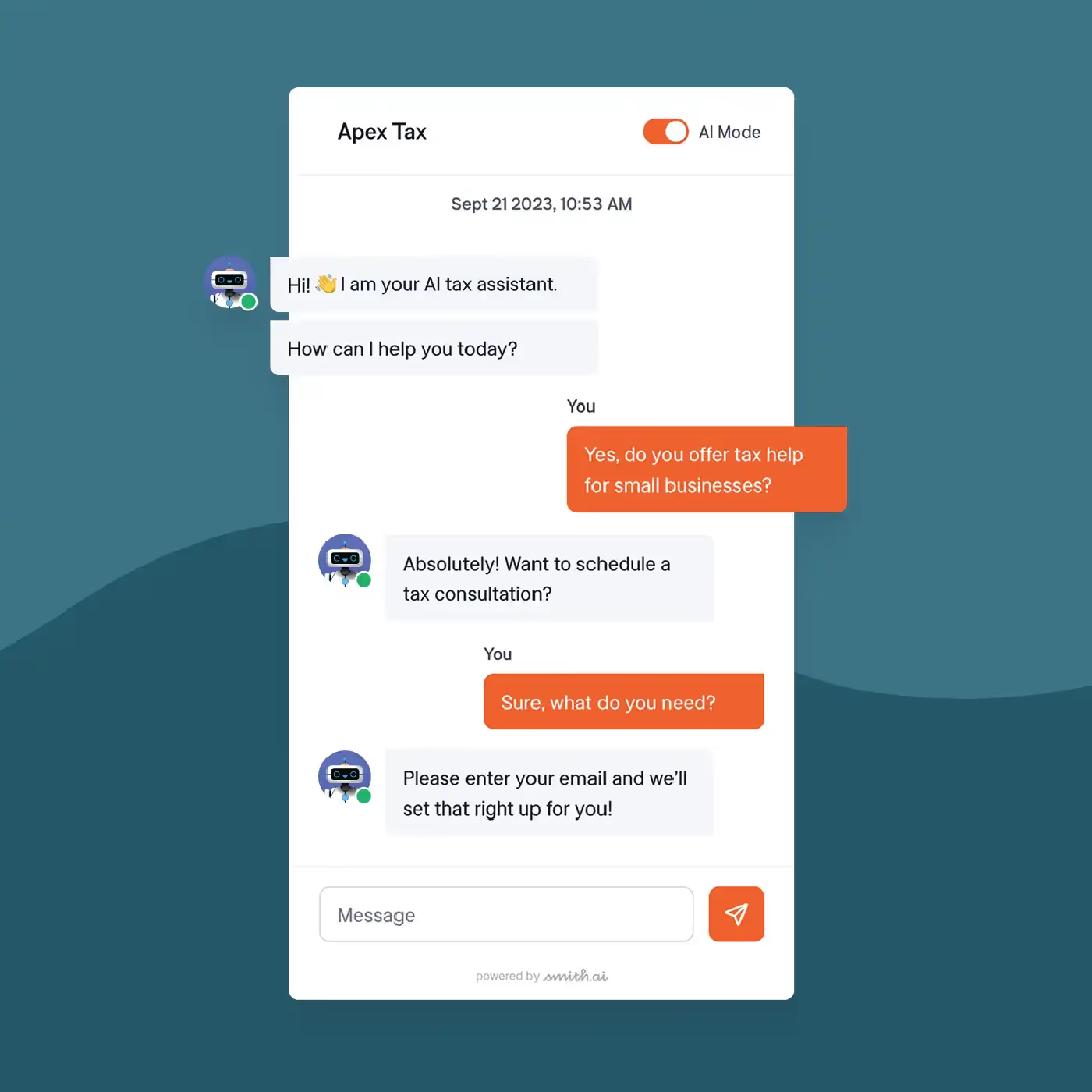
Many business owners spend evenings hunched over their desks, mapping out staff schedules while missing family time. Sound familiar? The right scheduling software helps reclaim those precious hours.
What's fascinating is how these platforms now do work that once required an entire admin team. AI goes beyond calendar automation by learning business patterns and making smart suggestions you'd never see on your own. A tiny bakery in Ohio can now operate with the scheduling precision of a Fortune 500 company, without hiring a single extra person.
Why Your Business Actually Needs Scheduling Software
Let's get real about the true cost of scheduling mistakes. When businesses double-book appointments or forget client meetings, they often lose not just that immediate revenue but potentially the lifetime value of those customers. Poor scheduling practices can have ripple effects throughout your entire operation. The scheduling software market is growing from $470.7 million in 2024 to $1,518.4 million by 2032 at a CAGR of 15.7%.
Business managers often spend many hours each month on scheduling tasks. This represents valuable time that could be invested in growing the business or enjoying personal activities instead of wrestling with spreadsheets and calendar conflicts.
Customers feel the pain too. They hate calling during business hours just to book an appointment. They hate waiting on hold. They hate when businesses forget they're coming. Modern scheduling software automatically eliminates these frustrating friction points. 68% of customers prefer businesses offering online scheduling options, making this feature as much about competitive advantage as operational efficiency.
Staff scheduling becomes particularly messy as a business grows. Training managers for success is key, and the right software spots patterns, such as recognizing the need for three servers on Friday nights but only one on Tuesday afternoons. This intelligence prevents wasted payroll and ensures customers aren't left waiting.
The best part? These tools connect with everything else in a business: customer database, payment processing, and even accounting software. One business owner finally took a real vacation last year because the entire operation ran from a single dashboard checked from a phone while the kids built sandcastles.
Top Scheduling Software Tools for Businesses in 2025
Finding the right scheduling tool resembles finding the perfect match for your specific needs. Here's what's working for real businesses in 2025:
Smith.ai
The AI Receptionist from Smith.ai effectively enhances sales processes by handling calls, booking appointments, and following up with customers, all while maintaining remarkably human-like interaction. Their AI-powered scheduling assistants book appointments during the initial call rather than just sending SMS links, dramatically improving conversion rates.
What makes it special:
- Their AI-led, human-backed approach combines the best of AI and human receptionists
- AI Receptionist speaks English and Spanish fluently
- Works with Salesforce, HubSpot, and thousands of other tools you already use
- Takes care of all those "Can I schedule for next Tuesday?" calls that interrupt your workflow
AI Receptionist provides seamless, intelligent call handling that helps attorneys manage client interactions, allowing them to focus on personal time, such as reading bedtime stories to their kids.
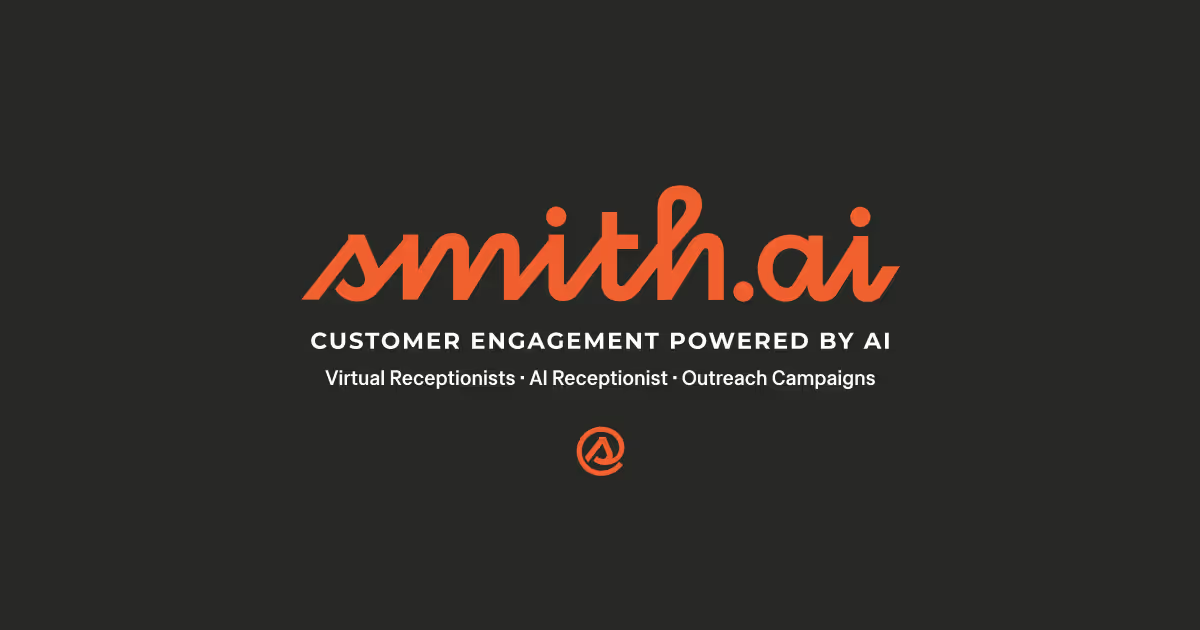
Acuity Scheduling
Acuity has evolved into a powerhouse for businesses with complex scheduling needs. Healthcare providers especially love it.
What you'll appreciate:
- Handles complicated appointment types and durations
- Apps for iPhone and Android that actually work well
- Makes your automated messages look like they came from you, not a robot
- Healthcare plans that keep patient data secure and compliant
Think of Acuity as that super-organized assistant who never calls in sick, never complains, and works while you sleep.

Setmore
Setmore gives you flexibility without requiring a computer science degree to set it up. It maintains the perfect balance between powerful features and usability.
Why businesses stick with it:
- Customizable booking pages that match your brand
- A mobile app that doesn't crash every time you need it
- Plays nicely with your other business tools
- Doesn't force you into a premium plan for basic features
Service businesses with multiple staff members find Setmore particularly helpful for handling different service types and duration.
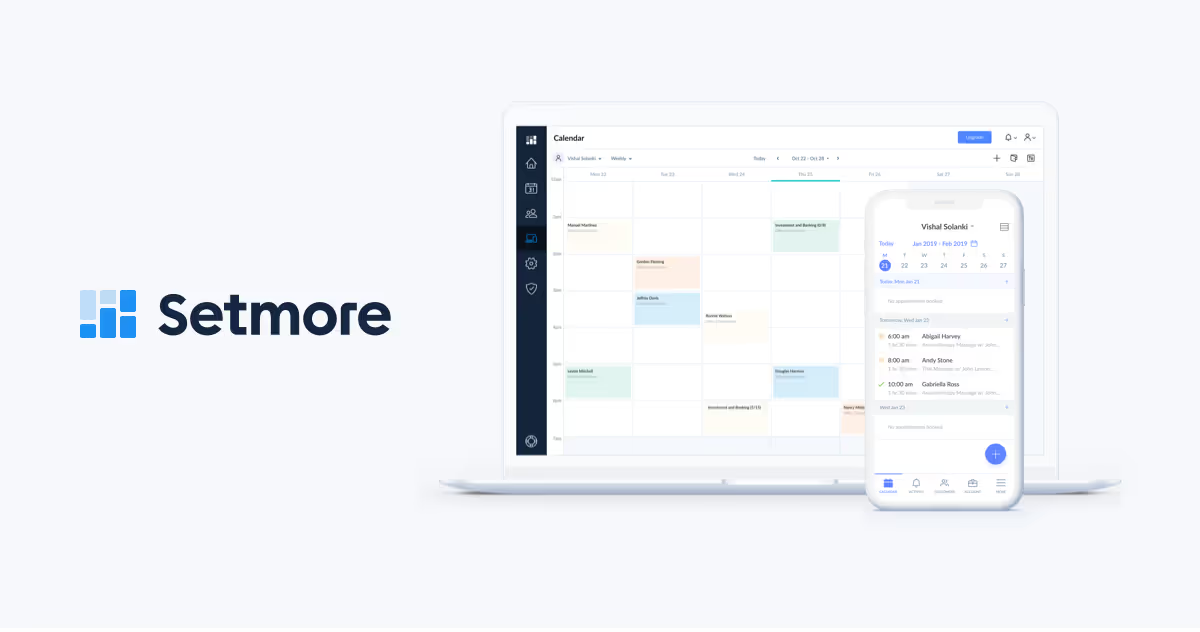
Square Appointments
Square brilliantly connects scheduling directly to payments. If you're already using Square for transactions, this makes perfect sense.
What stands out:
- Books appointments and processes payments in one seamless system
- Tracks inventory used during appointments
- Remembers customer histories and preferences
- Works exceptionally well for salons, spas, and retail appointments
A boutique salon owner might find that scheduling software dramatically cuts admin time, allowing for more personal time rather than constantly managing bookkeeping and inventory.
SimplyBook.me
SimplyBook.me shines for businesses serving international clients, with outstanding language support and regional customization.
Key strengths:
- Extensive customization that doesn't require coding
- Secure payment handling across currencies
- Creates a dedicated booking website for your business
- Strong client management and marketing tools
Businesses with global customers appreciate how SimplyBook.me handles different time zones and languages without confusion.
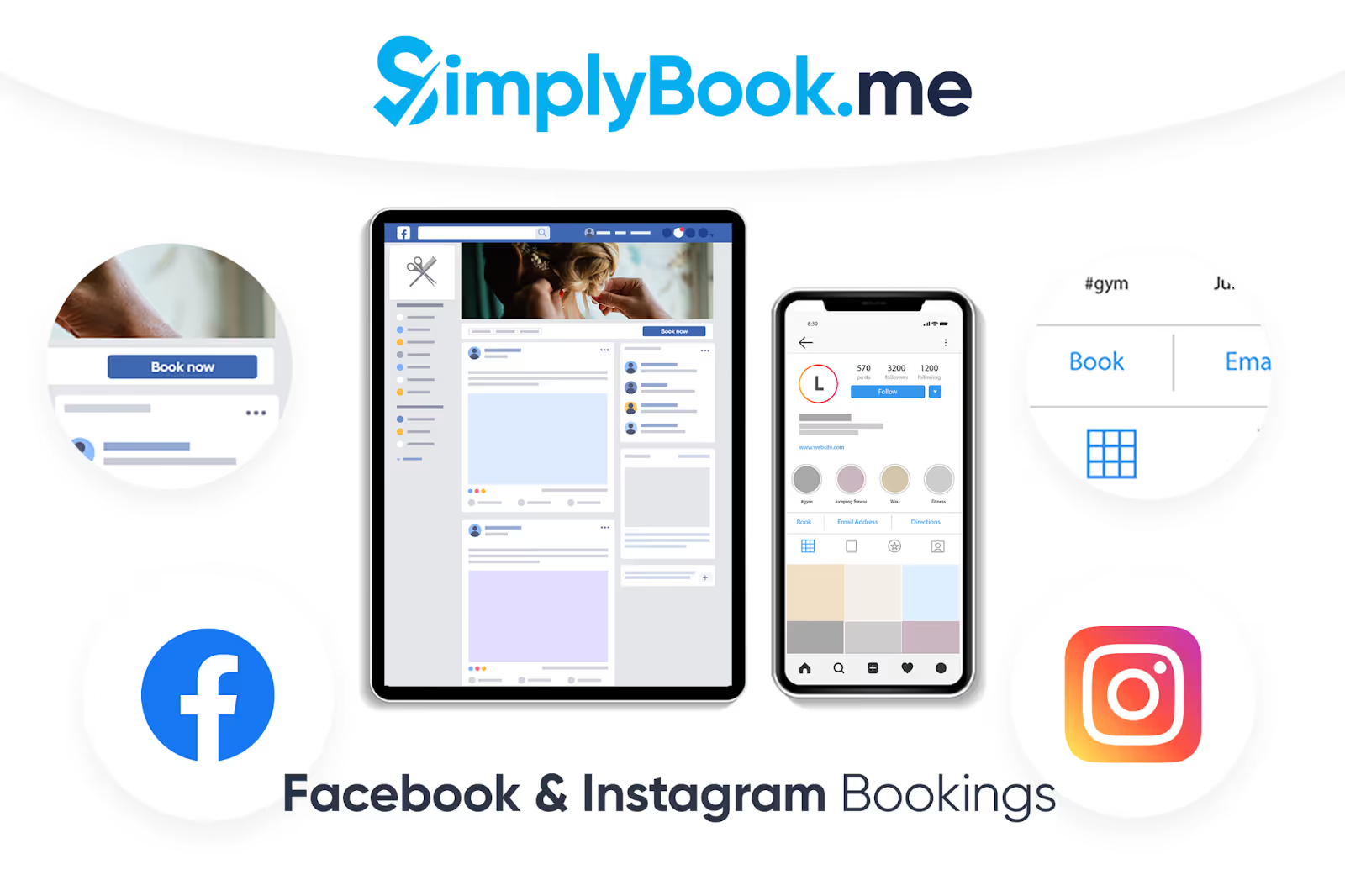
YouCanBookMe
YouCanBookMe offers straightforward scheduling without unnecessary complexity. It's perfect for small businesses that need simplicity.
What users love:
- Direct Google Calendar integration
- Team scheduling that's actually intuitive
- Custom booking forms that ask just what you need
- Reliable notification system that prevents no-shows
Its no-nonsense approach works well for businesses that need basic scheduling without a steep learning curve.
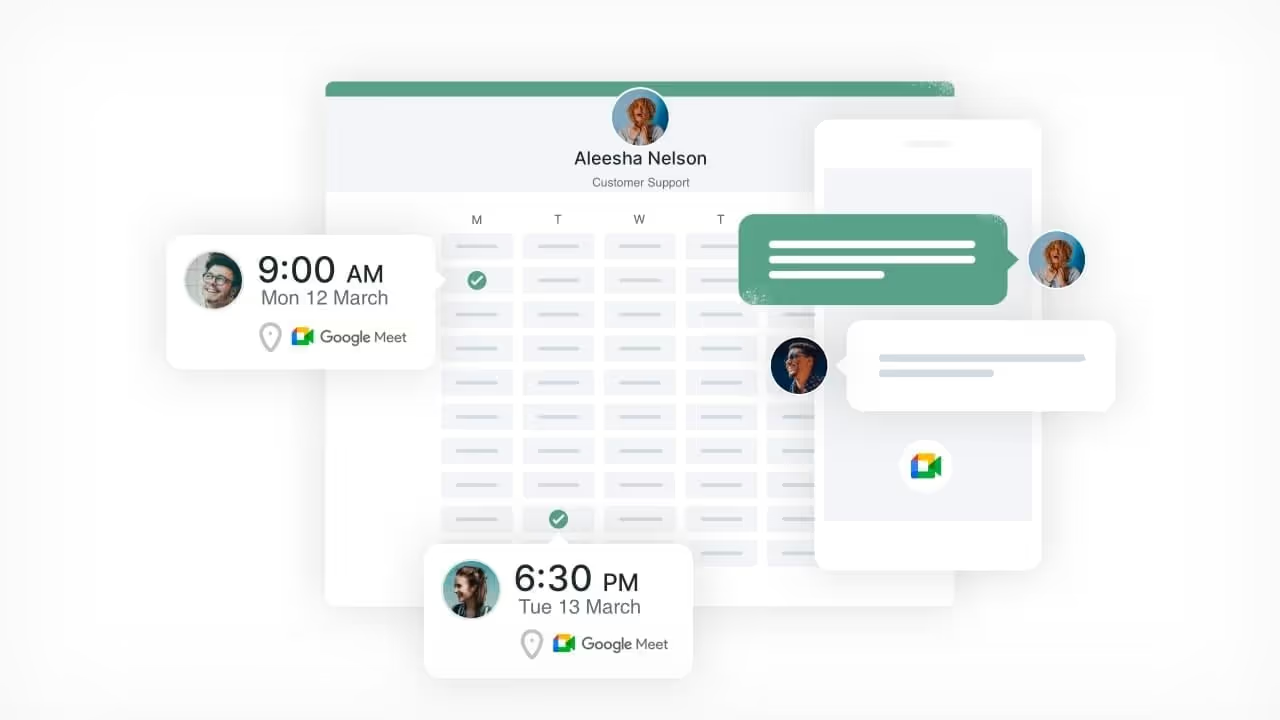
Calendly
Calendly remains the go-to for professional services because it removes scheduling friction without overwhelming users.
Standout features:
- Seamless integration with Zoom, email tools, and other essentials
- Connects with multiple calendars to prevent conflicts
- Easy website embedding that looks professional
- Custom scheduling links for different appointment types
Professional service providers appreciate how Calendly eliminates the "When are you available?" email chains that waste everyone's time.
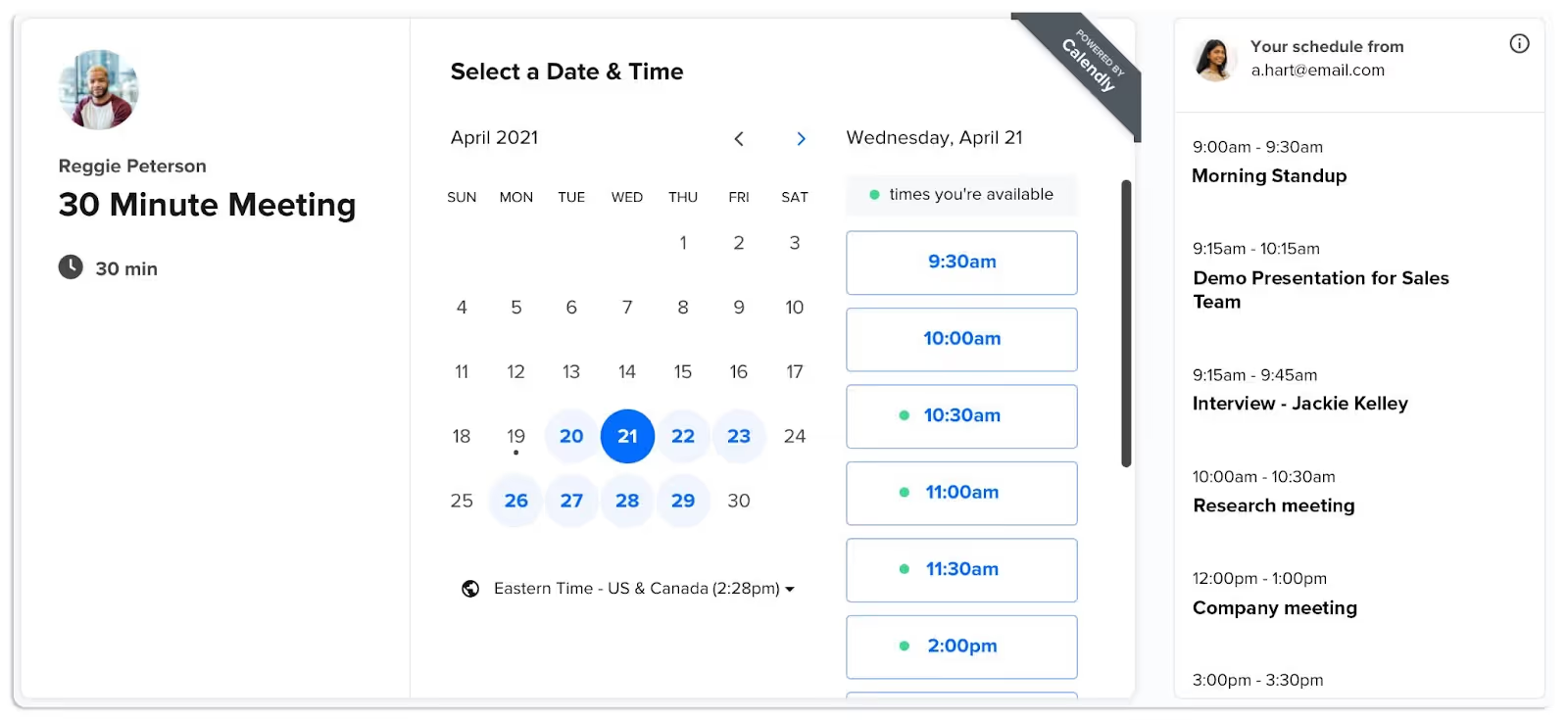
How to Actually Choose the Right Scheduling Software
Start by tracking your current scheduling process for a week. How many appointments do you handle daily? How often do you reschedule? How many staff members need the schedule? This real-world data tells you what you genuinely need.
Look for these must-have features: automatic conflict prevention (no more double-bookings), self-service for your team, online booking for clients, and recurring appointment settings. These core functions dramatically reduce administrative work, transforming hours of frustration into minutes of management.
Integration matters more than you think. Your scheduling software should communicate with your customer database, payment processor, and accounting software. CRM and scheduling integrations help eliminate manual data transfers between systems. They automate processes, reduce manual entry errors, and save time by synchronizing data seamlessly.
Integrations like Salesforce with Strapi enhance workflow efficiency by improving content management and personalizing customer experiences. Good integration allows appointment details to flow automatically into invoices, customer records to update themselves, and your business to operate smoothly and efficiently.
How to Make Scheduling Software Actually Work for Your Business
Implementation determines whether a scheduling tool will transform a business or simply collect digital dust:
Start by bringing the team into the process early. Businesses waste thousands on software nobody uses because owners choose it without input from the people who'll use it daily. When receptionists help select the system, they'll champion it rather than resist it.
Approach the change with empathy. People fear new technology will make their jobs harder or obsolete. Show them specifically how it makes their daily work easier, such as eliminating those end-of-day calls to remind clients about tomorrow's appointments.
Instead of flipping a switch, roll out in phases. Start with one department or service type. A physical therapy office began with just their massage appointments before expanding to all services. This approach works out bugs with less risk.
Set specific goals for implementation: reduce no-shows by 30%, cut scheduling time in half, or eliminate overtime costs. Track these metrics to show the team the real impact of the new system. Virtual receptionist services can eliminate scheduling headaches by handling appointments across multiple calendars while maintaining privacy and efficiency.
Take the Next Step
When evaluating scheduling software, look beyond features to how it fits a specific workflow. The right system grows with the business while simplifying daily operations. This simplification serves as a crucial component of effective business expansion strategies.
The best scheduling solution both returns valuable time to personal life and helps businesses operate more efficiently. And in 2025, that's finally within reach for businesses of any size.
Ready to transform your scheduling process? Book a free consultation with Smith.ai to discover how our AI Receptionist can streamline your appointment scheduling and enhance your customer experience.
Take the faster path to growth. Get Smith.ai today.
Key Areas to Explore

Your submission has been received!











%20(1).avif)

.svg)



